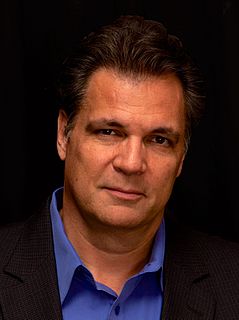A Quote by J. G. Holland
There is really nothing left to a genuine idle man, who possesses any considerable degree of vital power, but sin.
Related Quotes
Faith stands or falls on the truth that the future with God is more satisfying than the one promised by sin. Where this truth is embraced and God is cherished above all, the power of sin is broken. The power of sin is the power of deceit. Sin has power through promising a false future. In temptation sin comes to us and says: "The future with God on his narrow way is hard and unhappy, but the way I promise is pleasant and satisfying." The power of sin is in the power of this lie.
History does nothing, possesses no enormous wealth, fights no battles. It is rather man, the real, living man, who does everything, possesses, fights. It is not History, as if she were a person apart, who uses men as a means to work out her purposes, but history itself is nothing but the activity of men pursuing their purposes.
Every one of our sinful actions has a suicidal power on the faculties that put that action forth. When you sin with the mind, that sin shrivels the rationality. When you sin with the heart or the emotions, that sin shrivels the emotions. When you sin with the will, that sin destroys and dissolves your willpower and your self-control. Sin is the suicidal action of the self against itself. Sin destroys freedom because sin is an enslaving power.
What sort of power is it that really and truly renders the deity present? Human beings automatically think of God as someone who possesses and wields power. Jesus forces people to consider whether that deeply rooted conviction is true or not. In historical terms it is readily apparent that power, left to its own inertial tendencies, tends to be oppressive in fact. So it cannot be the ultimate meditation of God, though human beings might tend to think so
Repentance out of mere fear is really sorrow for the consequences of sin, sorrow over the danger of sin — it bends the will away from sin, but the heart still clings. But repentance out of conviction over mercy is really sorrow over sin, sorrow over the grievousness of sin — it melts the heart away from sin. It makes the sin itself disgusting to us, so it loses its attractive power over us. We say, ‘this disgusting thing is an affront to the one who died for me. I’m continuing to stab him with it!’






































